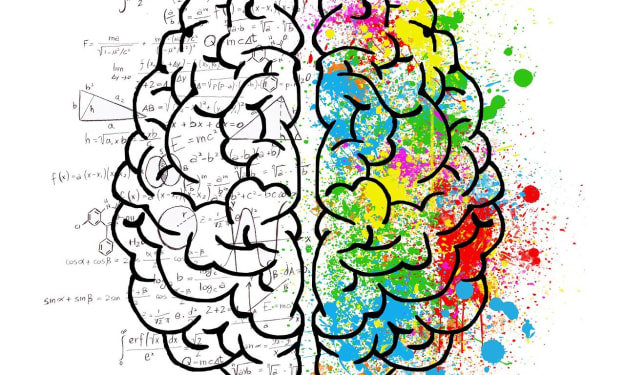The Science Behind the Mind: Exploring Intriguing Psychology Facts
Facts and Sciences behind our minds and delving into psychology

Introduction to Psychology Facts
Psychology, the scientific study of the mind and behavior, is a fascinating field that continues to unravel the complexities of human nature. By delving into the intricacies of human psychology, we can gain a deeper understanding of ourselves and others. In this article, we will explore some intriguing psychology facts that shed light on the workings of the mind.
The Basics of Human Psychology
To comprehend the fascinating world of psychology, it is essential to grasp the basics of human psychology. Human psychology encompasses various aspects, such as cognition, perception, emotion, and behavior. Our thoughts, feelings, and actions are influenced by a multitude of factors, including our upbringing, genetics, and environment.
One fundamental concept in psychology is the nature-nurture debate, which ponders whether our behavior is primarily shaped by genetics or by our environment. While both play significant roles, research suggests that the interaction between our genes and the environment is what truly molds our psychological makeup.
Intriguing Psychology Facts and Their Explanations
Now, let us explore some intriguing psychology facts that provide us with insights into the human mind. Did you know that our brains are wired to focus on negative experiences more than positive ones? This phenomenon, known as the negativity bias, stems from our evolutionary history. In the past, being hyper-aware of potential dangers helped our ancestors survive in a perilous world.
Another fascinating fact is that our memories are not as reliable as we might think. Research has shown that memories can be distorted or influenced by external factors, leading to false recollections. This phenomenon, called the misinformation effect, highlights the fallibility of our memory processes.
Additionally, studies have revealed that our body language can significantly impact how others perceive us. Nonverbal cues, such as posture, facial expressions, and gestures, can convey confidence, trustworthiness, and even romantic interest. Understanding these subtle cues can enhance our social interactions and communication.
The Science Behind Emotions and Behavior
Emotions are an integral part of the human experience, and psychology helps us unravel the science behind them. Emotions serve as adaptive responses that help us navigate the world around us. For instance, fear triggers the fight-or-flight response, preparing our bodies to confront or escape from potential threats.
The field of psychology also delves into the complexities of human behavior. By examining the interplay between our thoughts, emotions, and actions, psychologists can offer explanations for our behavioral patterns. Through various theories and models, such as cognitive-behavioral therapy and social learning theory, we can gain insights into why we behave the way we do.
Understanding the Subconscious Mind
While our conscious mind is aware of our thoughts and actions, a vast realm of mental activity occurs beneath the surface of our awareness. This is known as the subconscious mind. The subconscious mind influences our behavior, beliefs, and attitudes, often without us realizing it.
One intriguing fact about the subconscious mind is its role in decision-making. Research suggests that our subconscious mind plays a significant role in guiding our choices, often based on subtle cues and past experiences. Understanding the power of the subconscious mind can help us make better decisions and tap into our innate creativity.
Common Misconceptions About Psychology
Psychology is a field that is often subject to misconceptions. One common misconception is that psychology is solely about therapy and mental illness. While therapy is an essential aspect of psychology, the field encompasses a wide range of topics, including cognitive processes, social behavior, and developmental psychology.
Another misconception is that psychology is not a scientific discipline. In reality, psychology employs rigorous scientific methods to study and understand human behavior. Researchers use various research designs, statistical analyses, and empirical evidence to support their findings.
The Benefits of Studying Psychology
Studying psychology offers a multitude of benefits, both personally and professionally. By gaining insights into human behavior, we can develop a deeper understanding of ourselves and others. This knowledge can enhance our relationships, improve our communication skills, and foster empathy and compassion.
Professionally, a background in psychology can open doors to diverse career paths. Psychologists work in various settings, such as healthcare, education, business, and research. They contribute to society by helping individuals overcome challenges, conducting groundbreaking research, and shaping policies that promote mental well-being.
Psychology 101: Key Concepts and Theories
For those interested in delving deeper into psychology, it is essential to grasp key concepts and theories. One fundamental concept is classical conditioning, which explores how we learn associations between stimuli and responses. This concept was famously demonstrated by Ivan Pavlov's experiments with dogs, where he conditioned them to salivate at the sound of a bell.
Another influential theory is Sigmund Freud's psychoanalytic theory, which delves into the role of the unconscious mind and the influence of childhood experiences on our behavior. Freud's theory revolutionized the field of psychology and laid the foundation for the development of various therapeutic approaches.
How to Learn Psychology Effectively
Learning psychology effectively requires a combination of theoretical knowledge and practical application. It is crucial to engage with the material actively, rather than passively absorbing information. Actively participate in discussions, ask questions, and apply concepts to real-life scenarios.
Additionally, seeking out supplementary resources can enhance your understanding of psychology. Online courses, books, and documentaries provide valuable insights and perspectives from experts in the field. Remember to approach psychology with an open mind, as it is a constantly evolving discipline that challenges preconceived notions.
Resources for Further Exploration in Psychology
If you are eager to explore psychology further, numerous resources are available to deepen your knowledge. Online platforms, such as Coursera and Khan Academy, offer a wide range of psychology courses that cater to different interests and levels of expertise. These courses provide a structured learning experience and often include interactive elements to enhance understanding.
Books are another valuable resource for delving into psychology. From classic works like "Man's Search for Meaning" by Viktor Frankl to contemporary bestsellers like "Thinking, Fast and Slow" by Daniel Kahneman, there is a plethora of literature that explores the human mind from various angles.
Conclusion
Psychology is a captivating field that unravels the mysteries of the human mind. By exploring intriguing psychology facts, we gain insights into our emotions, behavior, and subconscious mind. Studying psychology offers numerous benefits, both personally and professionally, and equips us with a deeper understanding of ourselves and others. Whether you are a student, a professional, or simply curious about the complexities of human nature, delving into the world of psychology is a rewarding journey of self-discovery and intellectual growth.
CTA: Unlock the secrets of the mind and explore the fascinating world of psychology! Enroll in an online psychology course today and embark on a journey of self-discovery and knowledge.
About the Creator
Anisah Suhailah
A writer who's interested in various topics and dives deep into creating an engaging storytelling and interesting way of giving life to new perspectives.






Comments (1)
This article stands out with its quality writing and informative approach.